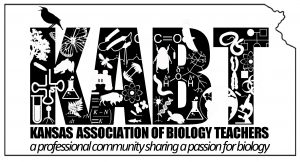“Cool” Opportunity for Landlocked KS classrooms
Here’s an opportunity passed on from one of the NSTA listservs. Don’t let being from KS stop you if you are interested. Projects like this want to see how well their approach works with landlocked classrooms too.
Dear Educators,
I am writing to invite you to consider piloting a new online unit on the COOL Classroom (http://new.coolclassroom.org). I have included more information about the new and improved COOL Classroom at the bottom of this email.
We are looking for approximately 15-20 middle (5-8) or high school educators (9-12) to beta test the resource and provide detailed feedback on its utility and effectiveness in the classroom. Educators participating in the study will receive a $1500 stipend to support their participation in the evaluation of the curriculum content. The selected teachers will be required to:
1) participate in an introductory session with a project evaluator,
2) keep a journal of their use of the COOL Classroom unit in their teaching (including keeping a portfolio of teacher lessons and student work related to the site). Some educators may be asked to allow video taping in their classroom of the enactment of the beta lessons, and
3) finally, participate in a concluding session with a project evaluator to critically assess the beta unit. Both the introductory and wrap up sessions will occur at the Institute of Marine & Coastal Sciences at Rutgers University located in New Brunswick, NJ. Our grant will support travel and overnight accommodations for participating educators.If you are interested in participating in this effort, please take approximately 2-5 minutes to fill out our application at:
http://www.surveymonkey.com/s.aspx?sm=GtQspFcwyWzZZP0lqo98sA_3d_3dNote you must fill out all the fields for the computer to accept your application. All information in the application will be kept confidential and are strictly for planning purposes of the pilot test.
Thank you for your interest. We are excited to work with you and get your feedback.
Sincerely,
Janice McDonnell
Associate Director of Education & Public Outreach Institute of Marine & Coastal Sciences Rutgers University
Phone: (732) 932 6555 x521
Email: mcdonnel@marine.rutgers.edu***************************************
More about COOL Classroom beta test (http://new.coolclassroom.org)
COOL Classroom’s goal: To increase students’ understanding and appreciation of the ocean in their lives by using real time data to engage then in ocean science research and connect them with observatory scientists.
As a result of engaging with the COOL Classroom students and educators will be able to use standards-based online materials to…
– Discover a unique learning experience
– Gain a better understanding of the scientific process
– Understand ocean observing systems and how to use real time data
– Discern how science is changing to become more collaborative and interdisciplinary
– Feel excited about learning
– Experience a connection to the ocean
– Appreciate ocean research
– Realize science is accessible
– Gain confidence teaching (educators) and using real time data
(students) for ocean science investigations and discoveries.Educators will be asked to test a standards-based unit:
Human Impacts Unit on the Hudson River Plume: Humans cause changes in the marine environment in a variety of ways. People harvest its resources (fish and fuels) build homes on its shoreline, and use it to transport goods. The unit will review how scientists use coastal observing systems and real time data to predict changes in our coastal
environment. In the Plume unit, students will explore density and
temperature effects in the ocean to identify and track fresh water plumes entering the ocean from the Hudson River. Major unit themes include density, watershed dynamics, and non point source pollution (human pollution – eutrophication).Students will be expected to:
– Use the online journal
– Participate in pre and post tests to evaluate for understanding and impact of unit.Educators will:
– Keep a journal that describes the implementation in terms of: what kids are struggling with, what they like, how they are interacting with the interface, etc. This is a written document using a template and a set of guiding questions provided.
– Participate in interviews with unit evaluators (going through the unit page by page and providing feedback about the unit and the
interface)
– Some educators will be asked to allow a project team member into
their classroom to video tape the students. Selected educators will
be asked to call us when they are working on a specific part of the lesson so that we can video tape the enactment of the lesson.————————————————–
Sage Lichtenwalner
Institute of Marine and Coastal Sciences Rutgers, The State University of New Jersey
71 Dudley Road, New Brunswick, NJ 08901
Phone: (732) 932-6555 x533
